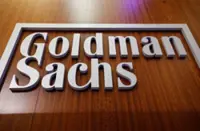
Chew in Singapore on Jan 26, 2023. With TikTok facing a ban in the US, Chew is expected to join Zendaya, Bad Bunny and Anna Wintour on the red carpet at the 2024 Met costume gala. — The New York Times
NEW YORK: Although the Met Gala serves as a branding event for Vogue, it has long accepted sponsorships from the tech giants that have threatened the very survival of legacy media publications.
Amazon founder Jeff Bezos appeared as the ball’s honorary chair in 2012. Four years later, when Apple was a Met Gala sponsor, its CEO, Tim Cook, showed up in tux and tails. And Instagram supplied cash in 2022.
The 2024 event is sponsored, in part, by TikTok, the social media goliath whose future looks murkier than that of Condé Nast, the publisher of Vogue, The New Yorker and other magazines, which has laid off employees and shuttered or sold off some of its publications in recent years.
TikTok found itself in jeopardy last month when President Joe Biden signed a bill that gave ByteDance, the Chinese company that owns TikTok, nine months to sell the app or face a ban in the United States. In the wake of that political firestorm, Shou Zi Chew, the 41-year-old TikTok CEO, is expected to join dozens of celebrity guests at the Metropolitan Museum of Art in Manhattan on Monday evening (May 6).
He was selected by Anna Wintour as an honorary chair for the benefit, which raises tens of millions of dollars each year for the museum’s Costume Institute. Wintour, global editorial director of Condé Nast and editor-in-chief of Vogue, has run the event for a quarter of a century, using her sense of celebrity and fashion synergy to create a splashy showcase of some of the world’s most influential people, a group that has come to include more social media influencers and fewer one-name stars (Beyoncé, Lady Gaga, Madonna) in recent years.
TikTok may be loathed by Washington lawmakers who have raised concerns about the Chinese government’s access to its 170 million users in the United States, but it remains an undeniable cultural force in American life, especially among Generation Z. The app is also a fashion force, and the Met Gala provides many TikTok creators with plenty of fodder. That makes the little-known Chew at least as powerful as the much more recognisable co-chairs of this year’s party: Zendaya, Jennifer Lopez, Bad Bunny, Chris Hemsworth and Wintour herself.
Along with TikTok, the luxury fashion brand Loewe is a sponsor; its creative director, Jonathan Anderson, will serve alongside Chew as an honorary chair.
TikTok declined to reveal its financial contribution to the star-studded event. In previous years, a sponsor is known to have kicked in roughly US$5mil.
Bezos and Cook were known quantities when they greeted the likes of Rihanna and Beyoncé at previous Met Galas. Chew, on the other hand, is likely to go unrecognised by most of the gawkers who line up behind the barricades along Fifth Avenue, many of whom may be making TikTok videos on their phones.
A charm offensive
Starting in 2022, when US lawmakers were turning up the heat on TikTok, the company changed its public relations strategy. Instead of keeping a low profile, it embarked on a charm offensive, with the fresh-faced Shou (pronounced “show”) Zi Chew front and center.
As TikTok plowed millions into its lobbying efforts, Chew met with the heads of think tanks in Washington and global leaders at the World Economic Forum in Davos, Switzerland. At The New York Times’ DealBook conference in November 2022, he fielded questions about national security concerns while wearing jeans, a casual blue blazer over a white T-shirt, and white sneakers that looked fresh out of the box.
His expected appearance at the Met Gala – once a staid affair for New York blue bloods that has become an East Coast Oscars on Wintour’s watch – can be viewed as part of TikTok’s shift in how it presents itself to the public. But this time around, instead of sitting down with those who have influence over matters of policy, the TikTok chief will be standing on a red carpet before a squadron of photographers.
Chew, who declined through a TikTok representative to be interviewed for this article, grew up in Singapore. That is where he has his main residence with his wife, Vivian Kao, 42, a onetime Goldman Sachs associate, and their three children. In 2021, the couple spent more than US$60mil on a house in the Queen Astrid Park area of the island nation, according to The Business Times of Singapore.
The family is intensely private. A rare glimpse of Kao and one of their children appeared in a video that Chew posted on TikTok from a recent Taylor Swift concert at Singapore National Stadium.
Chew has said that his father worked in construction and that his mother was a bookkeeper. After attending one of Singapore’s top secondary schools, he completed two years of mandatory national service in the Singapore Armed Forces, where he was an officer. From there, he enrolled at University College London.
After graduating in 2006 with a degree in economics, he took a job in the London office of Goldman Sachs. That was where he met Nathalie du Preez, who remains a friend.
“We sat on the same floor, and he was walking past,” du Preez recalled in a phone interview.
In an early conversation, they found that they had both applied to Harvard Business School. They took coffee breaks together at Leonidas Chocolates around the corner from the office.
When they arrived at Harvard in the fall of 2008, du Preez and Chew shared a ride with a group of people bound for Ikea. They were just two of the many students on the lookout for reasonably priced home decor items.
“He’s come a long way since then,” she said.
Du Preez and several other Harvard Business School classmates interviewed for this article recalled Chew as someone who was funny, although they could not remember a specific funny thing he had said. They also agreed that he was razor-sharp but offered no particular examples of his acuity.
They described him as curious about pop culture and sports, saying he was a fan of Manchester United and recalling that he had attended a David Guetta show at the Roxy in Boston. They mentioned that he liked video games, including the soccer game FIFA, and noted that he was the tidiest of his roommates.
Chew met the woman who would become his wife, Kao, at Harvard. A graduate of Wellesley College, she had grown up in Bethesda, Maryland, and is Taiwanese American.
Chew and Kao found themselves in business school as the financial crisis arrived. “We called it the ‘just in time’ admissions class, because the markets crashed that fall,” Caren Kelleher, a classmate, said in an interview.
Although it was a time when big banks were failing, some of Chew’s fellow business students were surprised when he took a summer internship at Facebook rather than go into finance. The social media company was only five years old and years away from going public.
His classmates later realised that he had made a prescient choice, according to Jean Abillama, who lived across the street from Chew in Cambridge, Massachusetts. “He was seeing this big wave of tech and ecommerce, the tech wave coming to light,” she said.
Master’s degree in hand, he joined DST Global, a venture capital firm led by Yuri Milner, a Russian billionaire who was on his way to becoming one of the most important private investors in Silicon Valley companies. Chew served as Milner’s point man in China, where he helped lead investments in Alibaba and the Chinese ride-hailing service DiDi.
During that time, Milner provided a reported US$10mil in financing to a news aggregation app founded by entrepreneur Zhang Yiming, who developed a rapport with Chew. The app would become ByteDance. Chew also helped with DST Global’s investment in Xiaomi, one of China’s largest phone manufacturers.
In 2013, Chew and Kao were married. Two years later, Chew left DST to become chief financial officer of Xiaomi, which he helped take public in 2018.
He got the job
Chew was named CFO of ByteDance in March 2021. He ascended to the top TikTok job two months later. In November of that year, he stepped down as ByteDance’s CFO.
TikTok’s previous CEO, Kevin Mayer, had resigned after less than four months on the job, citing the increasing pressure put on the company by the Trump administration because of its ties to China.
The opposition of US lawmakers did not abate during the Biden presidency. As Chew worked to keep lawmakers at bay, he found time to attend the 2022 Met Gala with Kao. He went all-out formal, in traditional white tie and tails; she wore a resplendent floral-patterned gown.
Nowadays, Kao runs Tamarind Global, a family office that, according to its website, “manages investments and philanthropy” for a “Singaporean family”. Its shareholders include Chew and a trust linked to Chew and Kao, according to public records.
There has been debate about whether Chew – who travels with a small security detail – is the controlling force at TikTok. Company sources have told the Times that major strategic decisions are handled by Yiming, among others.
Chew displayed a sense of fun in his TikTok handle – @shou.time – which riffs on the pronunciation of his first name. But the account did not have much of a following until March 2023, when he was grilled by US Congress.
Under aggressive questioning, Chew was made to repeat that he was a citizen of Singapore, not China. He went on to stress that TikTok was not controlled by the Chinese Communist Party and noted that his wife is an American, telling his questioners, “By the way, she was just born a few miles away from here.”
That was the appearance that catapulted him into public consciousness. Before the hearing, he had fewer than 20,000 TikTok followers. He now has 3.9 million.
Users posted clips highlighting belligerent questions from lawmakers. A number of TikTokers even called Chew “zaddy”, a slang term that refers to an older, attractive man.
On Nov 8, 2023, TikTok announced that it would serve as “the lead sponsor” of this year’s Metropolitan Museum of Art Costume Institute Benefit, the formal name of the Met Gala. Days after the announcement, Vogue Singapore published a rare sit-down interview with Chew.
He was photographed in Louis Vuitton jeans and a velvet Brunello Cucinelli blazer, and he spoke benignly about his mandatory service in the Singapore Armed Forces in “the jungles of Brunei” and doing diaper duty for a third time.
“There’s quite an age gap between this kid and the previous kid,” he said in the interview. “My wife and I are relearning everything, like changing diapers.”
Along with other top tech executives, Chew was called before Congress again in January. He stressed that he did not live in China and said he was not a member of the Chinese Communist Party.
While turning down interview requests from news organisations digging into TikTok’s Chinese ties, Chew gave an interview to the Condé Nast publication Wired during a TikTok music festival in Mesa, Arizona, in December 2023.
The Wired article largely kept the focus on TikTok’s pop-culture footprint while seeming to defend it against its American critics by arguing that “a thinly veiled anti-Chinese xenophobia has become a reliable part of the US political playbook”. It also included an advance plug for Chew’s appearance at the Met Gala.
“It’s very cultural,” Chew told Wired. “Fashion is an incredibly important part of TikTok. Louis Vuitton has 12 million followers on our app.” (The designer now has more than 13 million TikTok followers.)
Du Preez, the Goldman Sachs colleague and Harvard classmate, said she was not surprised that Chew would be interested in teaming up with Vogue and Wintour, particularly at a time when the company he leads is trying to show that it is not controlled by China.
“The Met Gala is an incredibly well-followed evening,” she said. “In terms of making friends in the US, I think it would make sense to do that, and everyone who is going will have a TikTok account.”
Not that she expected him to pick out a memorable ensemble.
“I have no doubt Vivian will dress him in something beautiful,” du Preez said. “And at this point he can get a lot of advice from anyone about what to wear. I’m sure Anna Wintour can give him tips.”
For the record, Chew is slated to wear something from Ralph Lauren, the American designer whose fondness for red, white and blue has made him a natural choice to outfit US Olympics teams in patriotic garb. – The New York Times









































